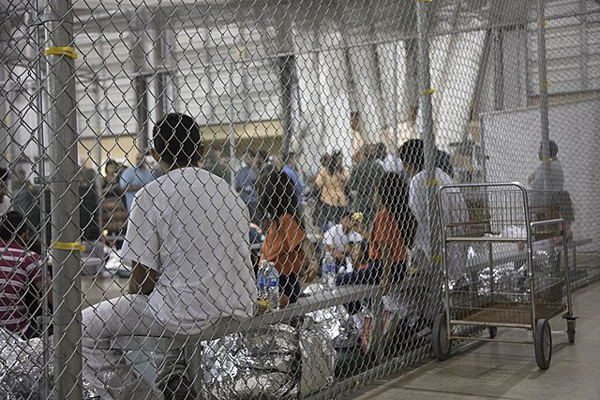- La Feria Community Holds Succesful Business Mixer Event
- Little Nashville to Take Place in Downtown Mercedes
- Lions Basketball Captures District Gold
- La Feria ISD Students Compete in Regional Chess Tournament
- Lions End First Half of 32-4A on a High Note
- La Feria ISD Held Another Successful Parent Conference
- Strong Appearance for Lions at Hidalgo Power Meet
- LFECHS Students Get to Meet Local Actress
- Students Participate in Marine Biology Camp
- Two LFECHS Students Qualify for All-State Band
Asylum Seekers’ Hunger Strike Reaches 60th Day
- Updated: September 20, 2019

At least 1,396 people have gone on hunger strike in 18 U.S. detention centers since May 2015, according to the group Freedom for Immigrants. Photo: U.S. Customs and Border Protection/Wikimedia Commons
by Eric Galatas
EL PASO, Texas – Today marks Day 60 of a hunger strike by three political refugees from India, detained for more than a year in an El Paso Immigration and Customs Enforcement facility.
The policy of indefinite detention began under the Obama administration, and has continued under President Donald Trump. Previously, most asylum seekers were released.
Margaret Brown Vega, volunteer coordinator with the group “Advocate Visitors with Immigrants in Detention,” says the strikers all passed a test showing they have credible fear of violence if they return home.
“All of these guys have sponsors,” says Vega. “They don’t have any kind of criminal history, so they pose no public threat. On that basis they should be released, to be able to pursue their asylum claim outside of detention.”
The hunger strike was called to draw attention to poor conditions at the El Paso Service Processing Center, Vega says, and because of a deep desire to be free, one way or another.
A report in The Guardian revealed that three strikers were recently force-fed by ICE through plastic naso-gastric tubes, a practice opposed by the American Medical Association and seen as torture by United Nations officials.
ICE representatives maintain that force-feeding is necessary to keep the men alive, and is required by regulation.
The force-feedings have been challenged in federal court, and a judge is now considering whether ICE has institutional alternatives. Vega doesn’t believe the procedure is necessary to keep the men alive.
“These men will stop their hunger strike immediately if they’re released,” says Vega. “That option is available to ICE – but instead, every request for release for all of these men has been routinely denied by ICE.”
ICE also force-fed at least six men from India this past December and January, according to The Guardian report. Nearly 1,400 people who are long-term detainees have gone on hunger strike since 2015, in 18 different facilities.


